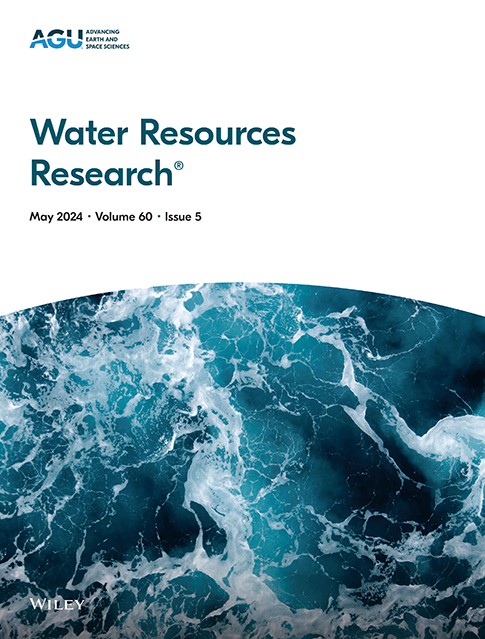汶川地震后一条前陆河流的退化:堰、供沙和采沙的综合影响
IF 4.6
1区 地球科学
Q2 ENVIRONMENTAL SCIENCES
引用次数: 1
摘要
自2008年汶川8.0级地震以来,龙门山前陆河流发生了明显的河床退化,其中石亭河在7年内局部退化幅度最大,超过20 m。急剧退化的潜在原因包括:(a)河道内堰造成泥沙断连;(b)地震引起的滑坡导致的砂石供应增加对砂石的动员作用;(c)密集开采导致的沉积物提取。本文采用一维河流形态动力学模型,研究了石亭河流域上述因素之间的复杂相互作用。模拟结果表明,河道内堰可以减少河床输运,并导致河床退化,这种退化与堰高成正比。当加上额外的供砂时,堰优先捕获砾石并输送砂石,增加了砾石的下游流动性,从而加剧了砂石的降解。对于石亭河,模拟的河床退化与模拟中1600万吨年采沙量的观测结果吻合较好,同时考虑了河道堰和供沙的影响。采沙的贡献比堰和供沙的耦合效应大一个数量级。模拟和观测结果均表明,由于人民堰与下一级控制构造之间的空间间隔较大,河床退化程度最大。本文章由计算机程序翻译,如有差异,请以英文原文为准。
Degradation of a foreland river after the Wenchuan Earthquake, China: A combined effect of weirs, sediment supply and sediment mining
Abstract Since the 2008 Wenchuan (Ms. 8.0) Earthquake, the foreland rivers of the Longmen Mountains have suffered from significant bed degradation, among which the Shi‐ting River has experienced the largest local degradation of more than 20 m in 7 years. Potential reasons of the dramatic degradation include: (a) sediment disconnectivity due to in‐channel weirs; (b) the mobilization effect on gravel of an increased sand supply as a result of earthquake‐induced landslides; and (c) sediment extraction due to intensive mining. In this paper, we study the complex interaction among the above‐mentioned factors in the Shi‐ting River, using a one‐dimensional river morphodynamic model. Simulation results show that in‐channel weirs can reduce bedload transport and lead to bed degradation that is proportional to weir height. When coupled with additional sand supply, the weirs preferentially trap gravel and deliver sand, augmenting the downstream mobility of gravel and thus the degradation. For the Shi‐ting River, the simulated bed degradation agrees well with the observation when an annual sediment mining of 16 million tons is implemented in the simulation, along with the effects of in‐channel weirs and sand supply. The contribution of sediment mining is one order of magnitude larger than the coupling effect of weirs and sand supply. Both the simulation and observation show that the largest bed degradation occurs downstream of the Renmin Weir, due to the large spatial interval between the Renmin Weir and the next grade control structure.
求助全文
通过发布文献求助,成功后即可免费获取论文全文。
去求助
来源期刊

Water Resources Research
环境科学-湖沼学
CiteScore
8.80
自引率
13.00%
发文量
599
审稿时长
3.5 months
期刊介绍:
Water Resources Research (WRR) is an interdisciplinary journal that focuses on hydrology and water resources. It publishes original research in the natural and social sciences of water. It emphasizes the role of water in the Earth system, including physical, chemical, biological, and ecological processes in water resources research and management, including social, policy, and public health implications. It encompasses observational, experimental, theoretical, analytical, numerical, and data-driven approaches that advance the science of water and its management. Submissions are evaluated for their novelty, accuracy, significance, and broader implications of the findings.
 求助内容:
求助内容: 应助结果提醒方式:
应助结果提醒方式:


